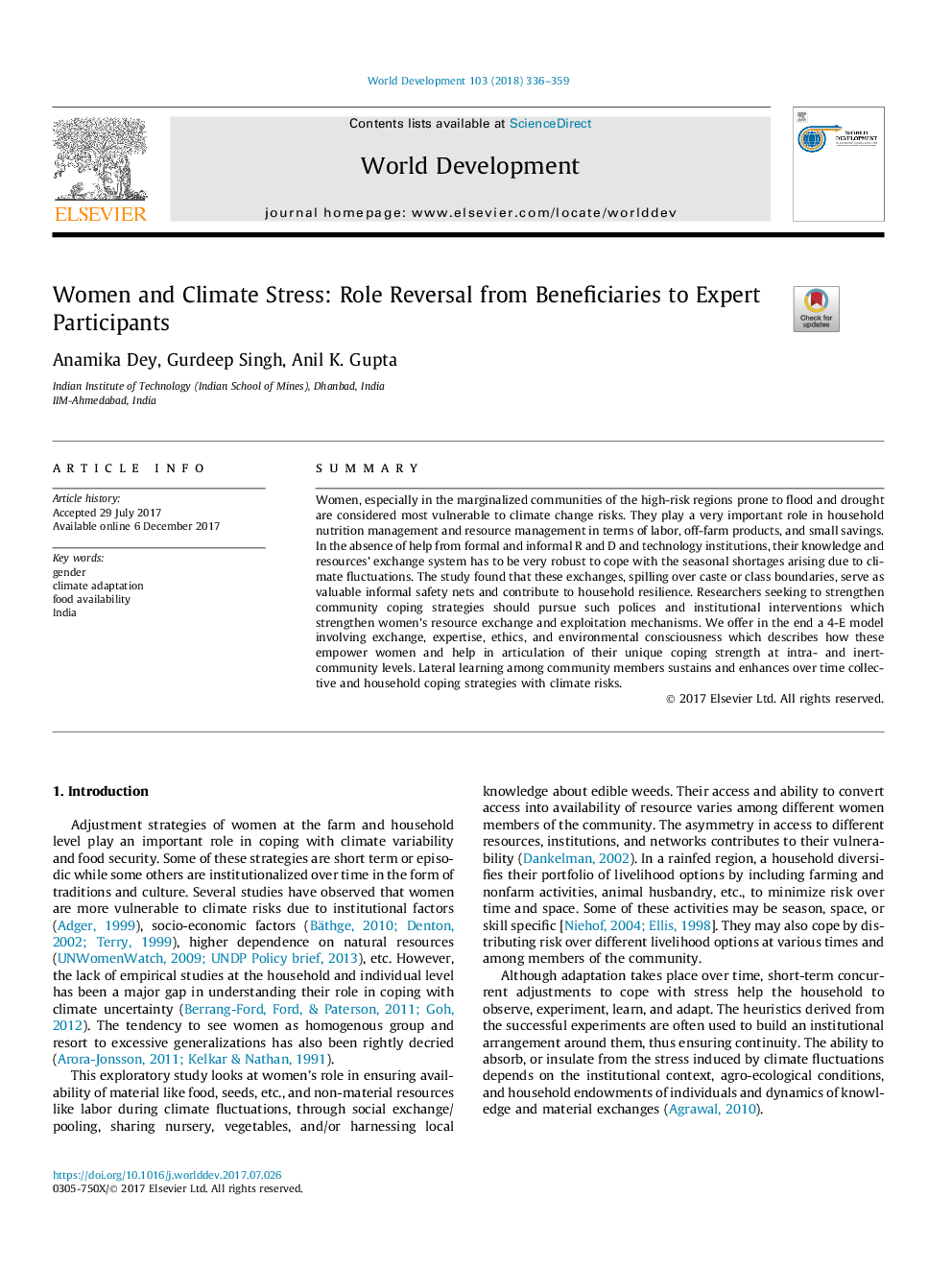| Article ID | Journal | Published Year | Pages | File Type |
|---|---|---|---|---|
| 7392355 | World Development | 2018 | 24 Pages |
Abstract
Women, especially in the marginalized communities of the high-risk regions prone to flood and drought are considered most vulnerable to climate change risks. They play a very important role in household nutrition management and resource management in terms of labor, off-farm products, and small savings. In the absence of help from formal and informal R and D and technology institutions, their knowledge and resources' exchange system has to be very robust to cope with the seasonal shortages arising due to climate fluctuations. The study found that these exchanges, spilling over caste or class boundaries, serve as valuable informal safety nets and contribute to household resilience. Researchers seeking to strengthen community coping strategies should pursue such polices and institutional interventions which strengthen women's resource exchange and exploitation mechanisms. We offer in the end a 4-E model involving exchange, expertise, ethics, and environmental consciousness which describes how these empower women and help in articulation of their unique coping strength at intra- and inert-community levels. Lateral learning among community members sustains and enhances over time collective and household coping strategies with climate risks.
Related Topics
Social Sciences and Humanities
Economics, Econometrics and Finance
Economics and Econometrics
Authors
Anamika Dey, Gurdeep Singh, Anil K. Gupta,
